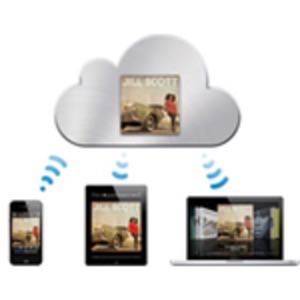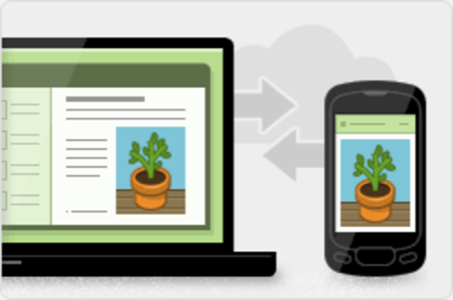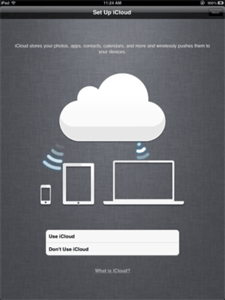In 2012 we’ve seen amazing growth in the Consumer Cloud, meaning cloud computing for everyday users. There are three main categories in the Consumer Cloud: storage, sync, and notes. Dropbox, Apple’s iCloud and Evernote (respectively) have been the most impressive performers in each category so far this year.

Note that the cloud – a.k.a. the Internet – is of course the backend of many a popular consumer app. Flickr, Gmail and even Facebook all store your content in the cloud. But what we’re talking about here are services that allow you to store and manage files in the cloud. Online file management is the key feature and you (the consumer) are fully aware that your files are being stored on the Web. Cheap hardware and virtualization have been the main drivers of this trend.
In 2012, there are three main types of Consumer Cloud services:
- Online storage:Dropbox is the leading brand in this category, despite competing with heavyweights like Google Drive, Microsoft SkyDrive, Amazon Cloud Drive, Box.net and others.
- Online sync:iCloud enables Apple users to easily sync their media across devices. So far music is the battleground in this category, although it will eventually extend to other types of media (like videos). iTunes Match allows iTunes users to sync their music collection across devices, using iCloud. Competitors include Google Music and Spotify.
- Online notes:Evernote is the leading player in this niche; it really has no peers.
You may use different products, depending on your preferred computing platform. For example many of you will use Microsoft’s SkyDrive, as you’re Windows users. Or you may prefer Spotify to sync your music, because of the other benefits it offers (the ability to stream almost any music, even if you don’t own it). But whatever your personal setup, I’d wager you’re using all three of these product categories more now than 6-12 months ago.
I know for sure that I am. Evernote is probably my most-used web app, outside of the obvious daily services like email and calendar. My usage of Evernote has increased markedly this year, as I’ve moved from making notes in paper notebooks to inputting virtually everything into Evernote. It’s helped my planning and self-organization immensely, knowing I can input and access notes across computers, tablet and smartphone.

My usage of Dropbox, ReadWriteWeb’s Best LittleCo of 2011, has also increased in 2012. I use it mainly for storing business files, so I can access them on whatever device I’m using. Others use Dropbox to store their photos, or to share music, or to send large documents to colleagues, or anything else involving files in this multi-device era.

However Dropbox faces more challenges than Evernote, because it has serious competition. In particular, Google and Microsoft. In April this year Google launched Google Drive – which directly competes with Dropbox as an online file storage solution. Google Drive is basically a file system for Google Docs. Microsoft’s SkyDrive has similar functionality. Also Amazon launched Amazon Cloud Drive in early May, but it isn’t as good as its competitors.
Like NPR’s All Songs Considered host Bob Boilen, this year I took the step of moving my music collection to iTunes Match. Although I didn’t go as far as Boilen, who deleted over 25,000 songs from his iTunes library. Boilen, whose whole life revolves around music, wrote that he’s going to “trust in the cloud, where my library now lives.” Here is Boilen’s description of what iTunes Match does exactly:

“Before I deleted the songs, the service scanned my music library, “matched” all the music that is available in the iTunes store, and uploaded what isn’t. Now, my entire library is accessible from anywhere I can get a wireless Internet or cell phone signal. Another benefit: since I used to rip my music at 128kbps, much of my “library” now sounds better, since Apple’s songs are encoded at 256kbps. It doesn’t matter if the original was purchased from Amazon’s mp3 store, ripped from a CD, downloaded from a friend or obtained illegally — I now have a legit 256kbps version.”
I’m using iTunes Match too now and I’ve found that it makes it easier to manage my music collection across (Apple) devices. It takes a bit of getting used to downloading your files from the Internet, rather than plugging in a USB cord to transfer between devices. But the benefits – such as getting more up-to-date and potentially higher quality “matched” files from iTunes – outweigh any issues.
The common theme here is that cloud computing has reached the consumer market in a big way now. If you’re not using Dropbox, Evernote and iTunes Match (or any of their competitors), you are missing out on hassle-free online storage, a totally new way to organize your notes, and easy content sync across devices. It’s 2012, welcome to the Consumer Cloud era.










